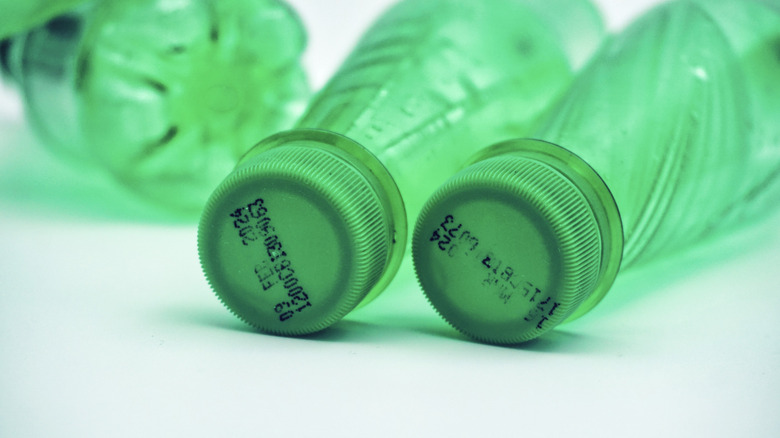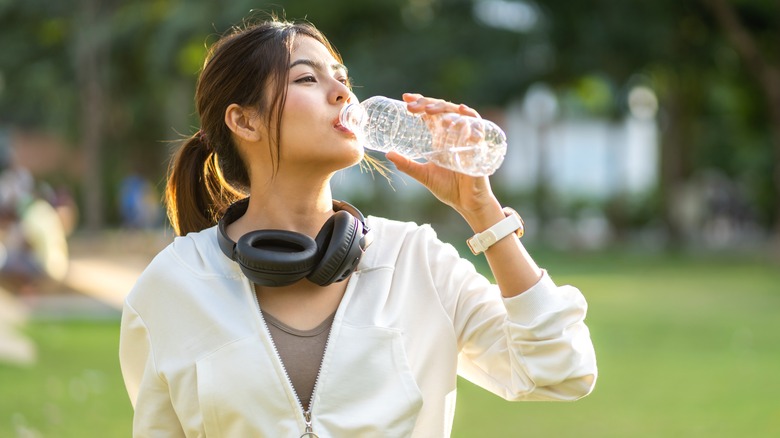Does Bottled Water Really Expire?
We've all happened upon a dusty plastic water bottle before, perhaps while cleaning out the depths of the pantry or a gym bag. And subsequently, the same question has probably come to all our minds: Can I still drink this?
The answer to whether bottled water stays fresh or expires is not quite as clear as the liquid itself. On its own, fresh water does not spoil — the same water we are drinking now has been cycling through planet Earth for 4 billion years. However, plastic bottles still come with expiration dates, because the disposable plastic used to make the bottles does not boast quite the same longevity as water. Depending on its environment, a bottle may degrade over time, compromising the quality of the water it encases. What's more, among the many popular water bottle brands, there is a variety of plastic types, and some age better than others. So before thirstily unscrewing the cap to that long lost water bottle, you may want to consider its integrity.
A bottle's atmosphere make all the difference in its life span
Plastic water bottles are lined with chemicals that, when exposed to heat over time, can leach into the water. These chemicals include phthalates, which help make the plastic more transparent, flexible, and durable, and bisphenol A (BPA), which is found in most commercial water bottles despite not being used during production. Leaving the plastic bottles in a hot environment, like a car parked in direct sunlight, a garage during the summertime, or on top of a hot radiator, causes these potentially toxic chemicals to filter into the water. Concerns over the effects of heat on plastic bottles are the same reason why there is really no such thing as microwave-safe plastic.
Additionally, all plastic can break down into microplastics over time. This means that the plastic in a water bottle can disintegrate into the water and then get consumed by the drinker. In terms of safety, there is plenty you should know about microplastics in bottled water. One alarming development is that health experts are not sure whether microplastics are ever fully expelled from your body once ingested, so it's better not to risk chugging on an old bottle out of sense of waste.
Declaring whether bottled water is safe to drink
So how, exactly, can you tell whether your bottled water has reached the point of no return? For starters, try to heed the expiration date on the bottle, if there is one. Since some companies do not include expiration dates (due to a lack of regulation on the FDA's part), try to consume those water bottles within two years of purchase, and store them in a cool, dry, and dark spot for that duration.
You can also often use your senses to tell whether the water is soiled, even if it has not passed its expiration date. It may appear cloudy or discolored, and it may have a peculiar taste or smell. Of course, good, clean water will be colorless, odorless, and neutral in taste. While it is important to avoid wasting water, your wellbeing comes first. If in doubt, throw it out. Or better yet, dump the soiled water and throw the bottle into a recycling bin.


